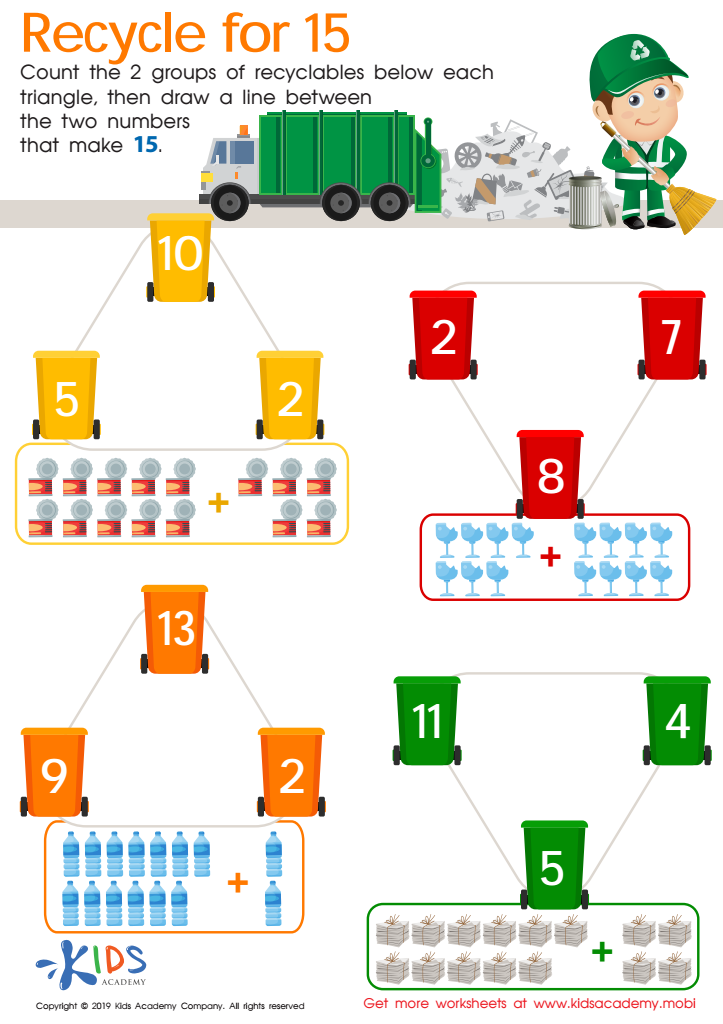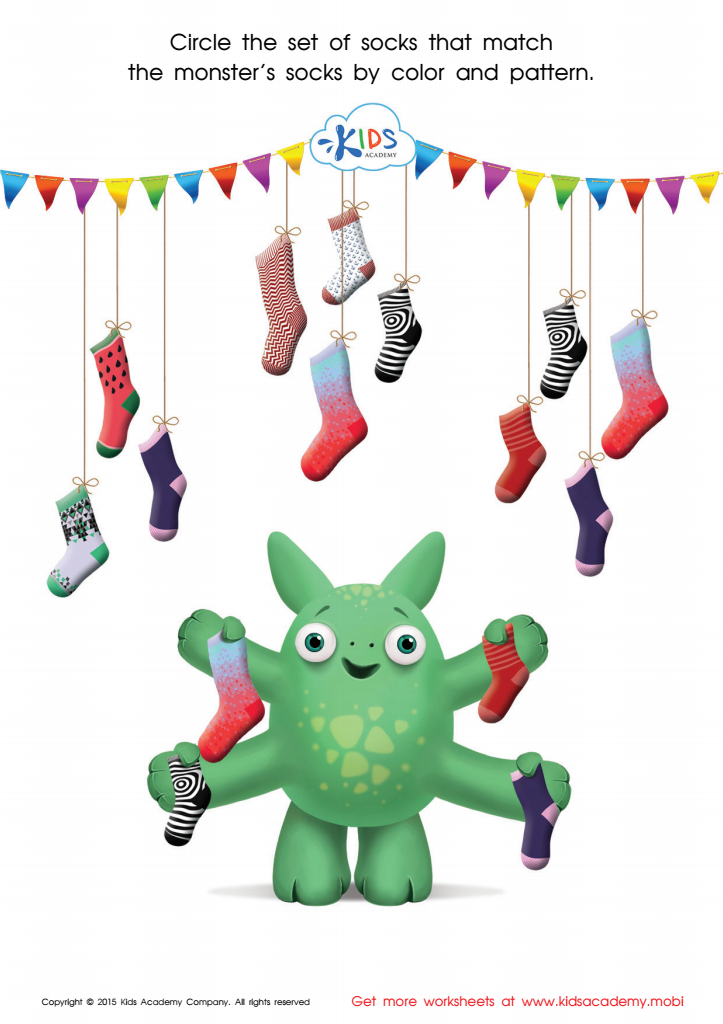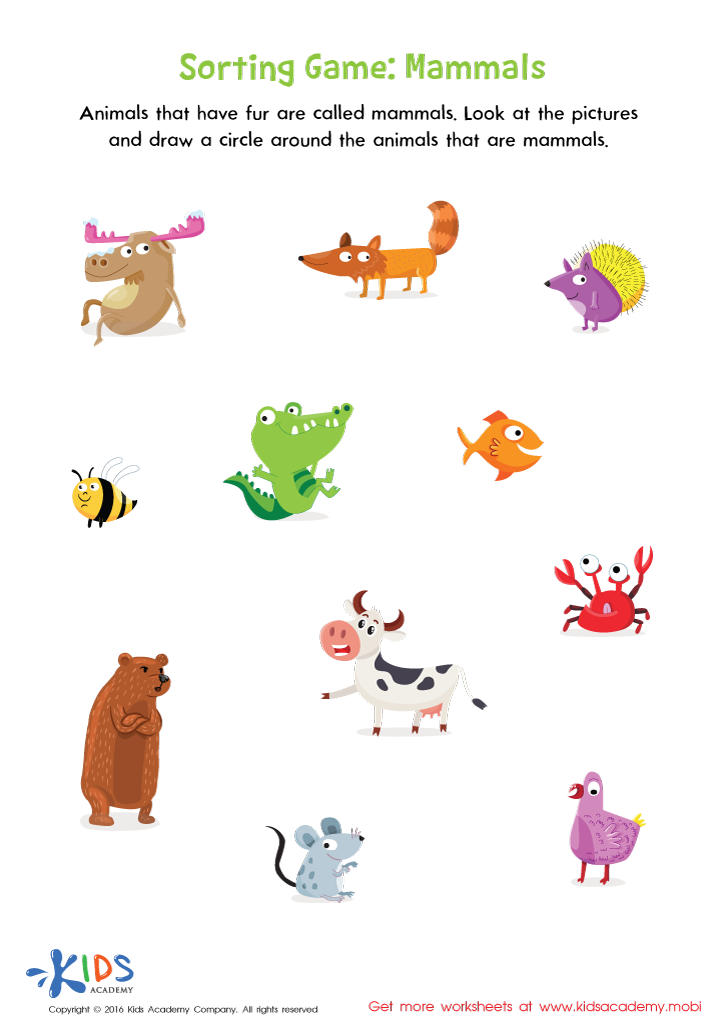Sorting skills Extra Challenge Worksheets for 5-Year-Olds
3 filtered results
-
From - To
Enhance your child's sorting skills with our engaging Extra Challenge Worksheets designed specifically for 5-year-olds! These worksheets provide an exciting platform for young learners to explore categories, patterns, and classifications. Each worksheet features vibrant illustrations and age-appropriate activities, fostering critical thinking and enhancing cognitive development. As children manipulate objects and sort them by color, shape, size, or type, they'll sharpen their observational skills and boost their confidence. Parents and educators can use these worksheets to create a fun, interactive learning environment that promotes independence and problem-solving abilities. Discover the joy of learning through sorting with our captivating Extra Challenge Worksheets!


Recycle for 15 Worksheet


Sort the Monster's Socks Worksheet


Mammals Sorting Worksheet
Sorting skills are fundamental to early childhood development and lay the groundwork for critical thinking and problem-solving abilities. When parents or teachers prioritize sorting skills for 5-year-olds, they are not just teaching a basic organizational skill, but also enhancing cognitive and social development. At this tender age, children learn to categorize objects based on attributes such as size, color, and shape. This process fosters logical reasoning and helps build connections between different concepts.
Engaging in sorting activities stimulates children’s critical thinking; they learn to make decisions about how to organize based on distinguishing features. Furthermore, these skills improve their communication abilities, as they articulate their sorting criteria to peers and adults. Sorting nurtures fine motor skills through handling various materials, promoting dexterity and coordination.
Additionally, sorting activities are often paired with play, which keeps learning enjoyable and engaging. As children collaborate with peers during sorting tasks, they also develop social skills, including teamwork and negotiation. By integrating sorting skills into early education, parents and teachers are equipping children with essential cognitive tools that will serve them well throughout their academic careers and beyond, reinforcing the importance of foundational learning in a holistic approach to child development.
 Assign to My Students
Assign to My Students


















